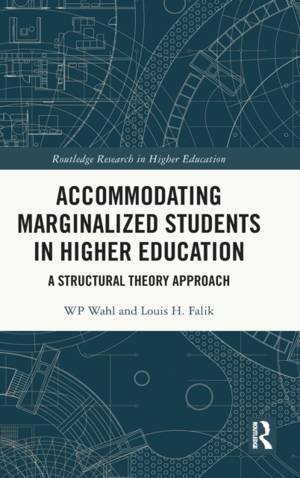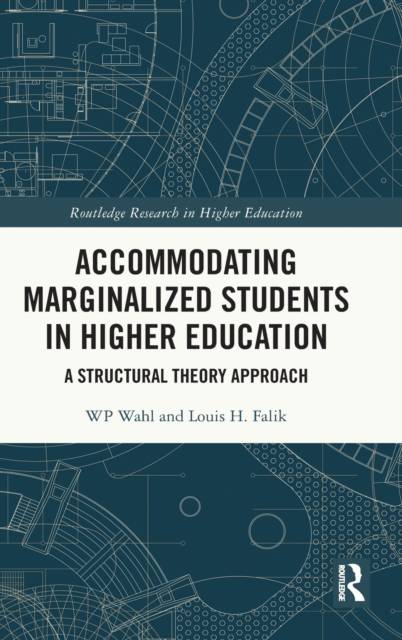
- Retrait gratuit dans votre magasin Club
- 7.000.000 titres dans notre catalogue
- Payer en toute sécurité
- Toujours un magasin près de chez vous
- Retrait gratuit dans votre magasin Club
- 7.000.0000 titres dans notre catalogue
- Payer en toute sécurité
- Toujours un magasin près de chez vous
Accommodating Marginalized Students in Higher Education
A Structural Theory Approach
Wp Wahl, Louis H FalikDescription
This book defines and examines the needs of the marginalized student and presents a theoretically grounded model to guide institutions of higher education toward developing new and more effective programmatic responses.
Taking the implementational experience of the University of the Free State (UFS) in Bloemfontein, South Africa, as a case study, it investigates the experience of students who present problems of learning and inadequate preparation for sustained performance, including learning disabilities, lack of study skills, motivational factors, and cultural support systems. Further, it identifies the pressure for institutions to be responsive to social and political pressures to accommodate the needs of students previously excluded from participation in higher educational or vocational training opportunities. In addressing this timely area of development, the authors formulate a unique conceptual foundation for the consideration of a new paradigm, based on cognitive and biosocial theories: those of the theory of structural cognitive modifiability and mediated learning experience and of Feuerstein and Bronfenbrenner's ecosystem structural orientation.
Innovative, applicational, and optimistic in nature, this book will appeal to scholars, researchers, administrators, and postgraduate level students working across the fields of higher education, educational psychology, and student counseling.
Spécifications
Parties prenantes
- Auteur(s) :
- Editeur:
Contenu
- Nombre de pages :
- 220
- Langue:
- Anglais
- Collection :
Caractéristiques
- EAN:
- 9781032456966
- Date de parution :
- 28-07-23
- Format:
- Livre relié
- Format numérique:
- Genaaid
- Dimensions :
- 152 mm x 229 mm
- Poids :
- 480 g

Les avis
Nous publions uniquement les avis qui respectent les conditions requises. Consultez nos conditions pour les avis.






